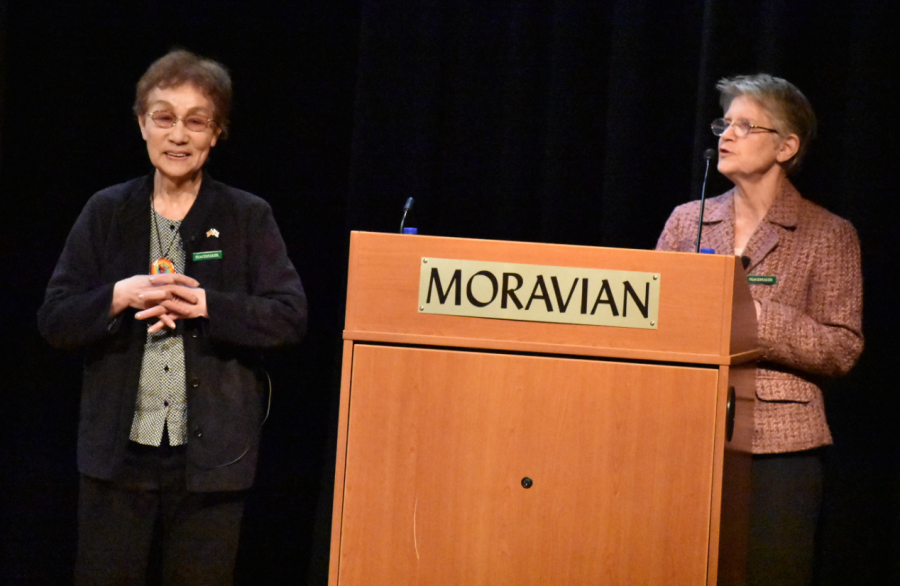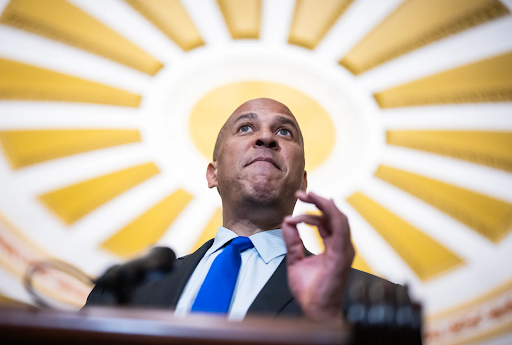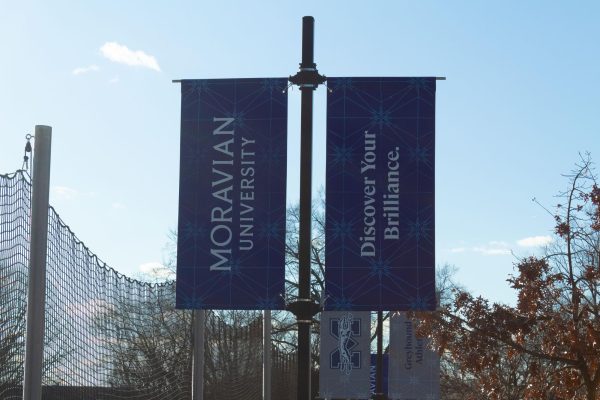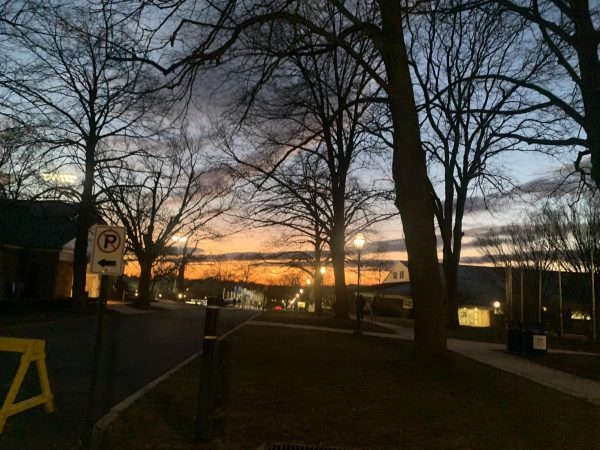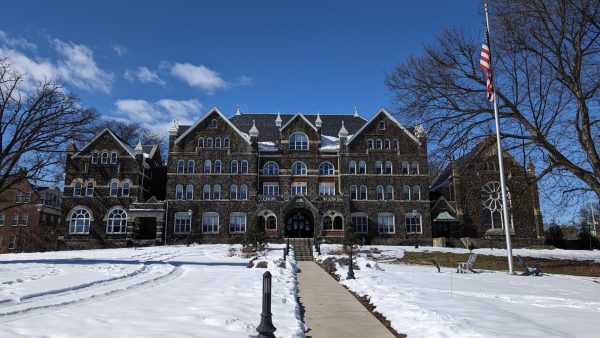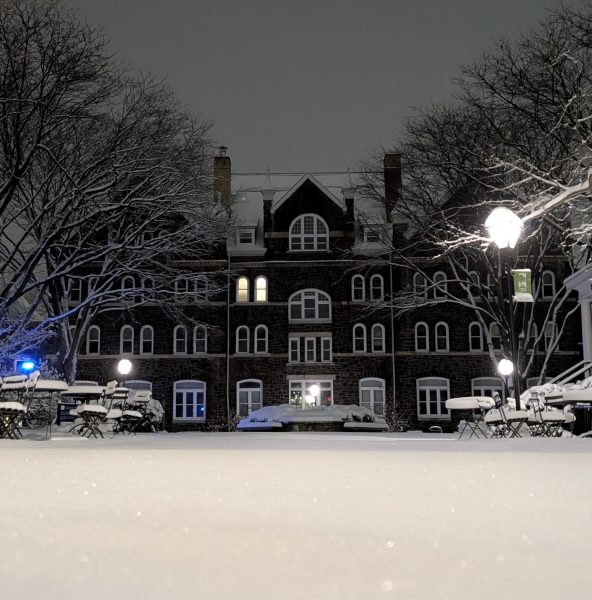Dinner with Hibakusha Emiko Okada Pushes for Peace
Okada telling her moving story alongside of translator Elizabeth Baldwin.
On Tuesday, Jan. 31, 2019, 12 students and Moravian faculty members met in the Snyder Room in the HUB for a dinner and conversation with three distinguished guests, proponents of world denuclearization.
The faculty at the event included Dr. Daniel Jasper, who has led trips to Japan the past three years in which Moravian students were able to experience various aspects of Japanese culture as well as the destruction caused by the atomic bombing of Hiroshima.
The three distinguished guests were Steve Leeper, a member of Mayors for Peace, Emiko Okada, a Hiroshima survivor (“hibakusha,” in Japanese), and Elizabeth Baldwin, a denuclearization activist and interpreter for Okada.
The Mayors for Peace organization is essentially the activism arm for Hiroshima and Nagasaki in relation to denuclearization campaigns. It is organized with 14 vice presidents around the world, all in some way connected to Hiroshima either geographically or because of the common ground established by the occurrence of similar atrocities. A major plan for the organization is “Vision 2020,” a complete denuclearization by the year 2020. Obviously enough, this plan is unfortunately unlikely to come to fruition.
Because of that, Leeper and his organization are promoting a new initiative called the “Hibakusha Appeal.” In essence, the Appeal asks more countries to push for an extension of the “Treaty on the Prohibition of Nuclear Weapons,” which was adopted in 2017. Currently, the only members of the treaty are ones lacking nuclear weapons. Already, all “hibakusha” activists have signed the Appeal.
The goal is to make the Appeal a grassroots movement and something “everyone wants to sign,” said Leeper. “We have a 100% consensus that we should not have nuclear weapons. They should not exist.”
Furthermore, Leeper warned about the motives of companies that supply the government with such weapons. “Companies like Raytheon, that’s what it’s [the Appeal] for,” he said. “They’re making tons of money; they’re in the black [classified] budget.”
Leeper picked the brains of the youthful attendees, searching for ways to better market the initiative. Possibilities included using social media and getting vloggers to persuade their many viewers to sign the Appeal. The recommendations resonated with Leeper, especially as he reflected on dealing with mainstream celebrities’ discouragingly opportunistic responses to such an initiative.
An additional concern was the argument at stake, and whether people may not sign the Appeal because they believe denuclearizing would put the U.S. in a weaker position with its rivals.
Leeper spoke of the mutual destruction that would inevitably result from multiple nuclear strikes, rendering the concern of deterrence obsolete. As he put it, “Ten to fifteen nukes would cause the destruction of our civilization” due to the dust and debris from any blast. Thus, if one country struck the U.S., we would retaliate in kind, destroying both countries in the process.
The Hiroshima survivor, Okada, reaffirmed the importance of this initiative. Upon arriving in Bethlehem, she remarked, “I have felt so energized since I came to this city last night. Does anyone know whether the mayor has any interest in nuclear weapons?”
Okada urged the student attendees to act responsibly and yet remain hopeful. “Students can do anything; these are the freest times of your life, time when you can approach leaders. When they say, ‘I don’t have time for that,’ keep bothering them! It is my heart’s desire that the young people grow into people who think independently and act independently.”
Okada also commented more specifically on the petition, “We are going to collect millions of signatures and take it to the U.N., and they can’t ignore us because we have so many. In a petition, it doesn’t matter what your age is, what your gender is, or your nationality.”
Her final words were both haunting and inspiring: “There are so few of us “hibakusha” left. There are few of us left to speak, let alone travel around the world. I want you to take the whole world into your vision.”


